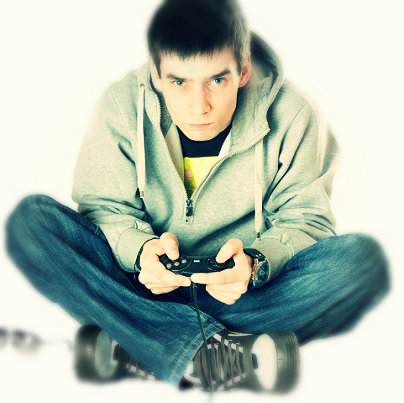16 Oct 2014
How To Prevent And Correct Video Game Addiction
What do you do if you have a child, most likely a son, who plays Internet or video games obsessively? How do you know if he has gone too far and spends too much time gaming? And how do you get him to cut back? Whether an addiction to gaming is diagnostically real is up for debate by the experts, but the fact remains that people can become obsessed with gaming to the detriment of other aspects of their lives. It’s important for parents to monitor a child’s gaming and set limits if it gets out of hand.
Gaming Addiction?
 The Diagnostic and Statistical Manual of Mental Disorders is the number one resource for diagnosing any kind of mental disorder or condition, including addiction. In the latest edition, DSM-5, experts decided not to include Internet gaming disorder as a diagnosable condition. They did, however, list it in a section for potential disorders requiring further research. This means that there is a possibility that Internet gaming and video gaming can be problematic for individuals and can approach addictive-like levels.
The Diagnostic and Statistical Manual of Mental Disorders is the number one resource for diagnosing any kind of mental disorder or condition, including addiction. In the latest edition, DSM-5, experts decided not to include Internet gaming disorder as a diagnosable condition. They did, however, list it in a section for potential disorders requiring further research. This means that there is a possibility that Internet gaming and video gaming can be problematic for individuals and can approach addictive-like levels.
DSM-5 describes gaming disorder as characterized by compulsive playing, avoiding other activities and interests in favor of gaming, and distress or impairment as a result of these behaviors. Some obsessive gamers even experience withdrawal-like symptoms when their games are taken away. It turns out that this issue of compulsive gaming is a real problem with some kids. Research has found that among boys who game, 12 percent fit the definition of addicted, while 8 percent of girls do.
Preventing And Correcting Obsessive Gaming
Whether or not this obsessive level of gaming gets labeled as an addiction is largely unimportant. As long as experts recognize that some young people truly have a problem with gaming and have the resources to help them, labeling doesn’t matter. If you are the parent of a child who enjoys gaming, be aware of the issue and be prepared to act if you think your child has a problem.
Signs Of A Problem With Gaming
First it is important to recognize the signs of a problem. Your child may be at risk of a gaming addiction if he can’t seem to stop playing, even when you repeatedly ask him to stop. He may also lie about how much he plays games and may start to lose interest in other activities he used to enjoy. Others signs of a problem are slipping grades or being tired from gaming too much. If your child is already showing some of these signs and you can’t get him to stop, it may be time to get some professional help. A good therapist, recommended by your pediatrician, will be able to help get you started.
If your child is not yet showing signs of a problem, but you’re still worried, there are some steps you can take to avoid a gaming addiction. Start by setting limits. Your child should not have free reign to play games whenever and for as long as he wants. Set aside a certain time during the day and do not allow gaming at any other time. Another great way to get kids off of games and devices in general is to engage in family activities unrelated to technology. Take a hike together, go to the park, go to the pool or take a camping trip and outlaw devices for the duration.
It is also important to talk to your child about your concerns. Explain how it is easy to get obsessed with certain activities, like gaming, and how that can be bad for you. Being open with your child is a great way to foster trust and communication and to help him understand why you set limits.
Read This Post To Find Out If Your Child Is Addicted To Gaming, The Signs And What To Do
29 Aug 2014
Is My Child Addicted To Gaming?
Kids today have unprecedented access to technology and devices, which can be both positive and negative. Having access to the Internet and using tablets and smartphones can provide a wealth of educational opportunities. The dark side to all this access is the potential for obsessive behaviors. Video games and Internet gaming tend to lead to addictive-like behavior, and it can start early. If you’re wondering if your child spends too much time playing games, learn more about the potential for addiction and how to curb it.
Are Video Games Addictive?
 Experts in the field of addiction have debated the existence of so-called behavioral addictions for years and how they compare to chemical addictions. The latter refers to a “true” addiction to a mind-altering substance like alcohol or illegal drugs. A behavioral addiction is considered to occur when someone exhibits addictive behaviors with respect to anything other than drugs or alcohol. Some of the more common behavioral addictions include gambling, sex or pornography, shopping and eating. Behavioral addictions can cause similar symptoms to chemical addictions, such as withdrawal, lack of control and impulsiveness.
Experts in the field of addiction have debated the existence of so-called behavioral addictions for years and how they compare to chemical addictions. The latter refers to a “true” addiction to a mind-altering substance like alcohol or illegal drugs. A behavioral addiction is considered to occur when someone exhibits addictive behaviors with respect to anything other than drugs or alcohol. Some of the more common behavioral addictions include gambling, sex or pornography, shopping and eating. Behavioral addictions can cause similar symptoms to chemical addictions, such as withdrawal, lack of control and impulsiveness.
Internet and technology-related behavioral addictions are naturally on the rise as more people have access to the devices that enable the problem. Gaming can become a behavioral addiction, although some experts might refer to it as something different, such as Internet gaming disorder or an impulse control disorder. In fact, one study has reported that as many as one in ten children show signs of addiction when it comes to playing video games.
What Are The Signs Of A Video Game Addiction?
So how can you tell if your child is at risk or already showing signs of addictive behaviors? The main criterion is that the gaming is interfering with a child’s life. This could mean that your child’s gaming is causing his grades to deteriorate because he no longer has time to study. It could be that he spends so much time playing games that he doesn’t interact socially with his peers outside of school. It could also mean that he has damaged relationships with family members because of his habit. Other signs of addictive behavior include a preoccupation with gaming, thinking about it constantly, playing whenever possible, and feeling restless or irritable when not playing.
My Kid May Be Addicted To Gaming, Now What?
If you see signs in your child that he may be addicted to gaming, try to cut back the amount of time he spends playing. Cutting him off entirely doesn’t make sense, but you should be able to limit his time by setting certain gaming hours. It is also important that you model responsible technology use because actions speak louder than words. Insist that everyone in the family turn off devices at specific times of day, such as over dinner or when studying. Seeing everyone cut back on technology will help your child to be able to do the same.
When you try to cut back and find that your child just can’t do it, or that his responses to the limitations are irrational and severe, you may need some professional help. The addiction itself may not be the root of the problem either. Some experts have found that, as with drug and alcohol addiction, compulsive gaming often masks underlying mental health issues like depression or anxiety disorders. If you are concerned about your child’s use of video games and his overall mental health, see your pediatrician for referrals. You may have to get an evaluation and a diagnosis from an addiction specialist to truly get your child the help he needs.


